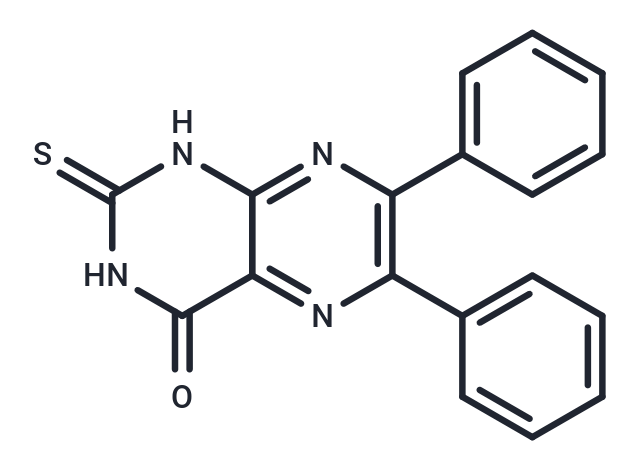Shopping Cart
- Remove All
 Your shopping cart is currently empty
Your shopping cart is currently empty

SCR7 pyrazine (SCR7) enhances CRISPR-Cas9-mediated homology-directed repair (HDR) efficiency in vitro up to 19-fold. Inhibits nonhomologous end-joining (NHEJ).

| Pack Size | Price | Availability | Quantity |
|---|---|---|---|
| 1 mg | $33 | In Stock | |
| 2 mg | $46 | In Stock | |
| 5 mg | $72 | In Stock | |
| 10 mg | $123 | In Stock | |
| 25 mg | $271 | In Stock | |
| 50 mg | $429 | In Stock | |
| 100 mg | $619 | In Stock | |
| 1 mL x 10 mM (in DMSO) | $72 | In Stock |
| Description | SCR7 pyrazine (SCR7) enhances CRISPR-Cas9-mediated homology-directed repair (HDR) efficiency in vitro up to 19-fold. Inhibits nonhomologous end-joining (NHEJ). |
| In vitro | SCR7 effectively inhibits the formation of multimers at 200 μM and above. SCR7 successfully inhibits cell proliferation of MCF7, A549, HeLa, T47D, A2780, HT1080, and Nalm6 with IC50 of 40, 34, 44, 8.5, 120, 10, and 50 μM, respectively.[1] SCR7 suppresses the NHEJ repair of CRISPR-Cas9-induced DSBs.[2] |
| In vivo | SCR7 treatment (10 mg/kg, i.m.) signi?cantly reduces breast adenocarcinoma-induced tumor, and exhibits 4-fold increase in lifespan compared with control group. However, in Swiss albino mice with Dalton's lymphoma tumor model, SCR7 (20 mg/kg, i.p.) exhibits neither tumor regression nor increase in lifespan. In BALB/c mice, SCR7 (20 mg/kg, i.p.) signi?cantly enhances the cytotoxic effects of radiation, etoposide and 3-Aminobenzamide on tumor derived from Dalton's lymphoma (DLA) cells.[1] |
| Kinase Assay | Complementation of SCR7 Inhibition with Puri?ed Ligase IV: Complementation experiment is carried out by adding increasing concentrations of puri?ed Ligase IV/XRCC4 complex (30, 60, and 120 fmol) along with the oligomeric DNA substrates (5' compatible and 5'-5' noncompatible ends) to the SCR7-treatedextracts. Reactions are incubated for 2 h at 25℃. The reaction products are then resolved on 8% denaturing PAGE. The gel is dried and exposed and the signal is detected with a PhosphorImager and analyzed with Multi Gauge (V3.0) software. |
| Cell Research | Cell proliferation of cancer cells are determined by MTT and trypan blue assays. Briefly, MCF7, CEM, HeLa, A549, HT1080, A2780, T47D, Nalm6, N114 and K562 cells are grown in presence of SCR7 (10, 50, 100, and 250?μM) for 24 or 48?h, and subjected to MTT or trypan blue assays. Each experiment is repeated a minimum of three independent times. (Only for Reference) |
| Molecular Weight | 332.38 |
| Formula | C18H12N4OS |
| Cas No. | 14892-97-8 |
| Smiles | O=C1NC(=S)NC2=NC(C3=CC=CC=C3)=C(N=C12)C1=CC=CC=C1 |
| Relative Density. | 1.42 g/cm3 (Predicted) |
| Storage | Powder: -20°C for 3 years | In solvent: -80°C for 1 year | Shipping with blue ice. | ||||||||||||||||||||||||||||||||||||||||
| Solubility Information | H2O: < 1 mg/mL (insoluble or slightly soluble) Ethanol: 3 mg/mL (9.03 mM), Sonication is recommended. DMSO: 66 mg/mL (198.57 mM), Sonication is recommended. | ||||||||||||||||||||||||||||||||||||||||
Solution Preparation Table | |||||||||||||||||||||||||||||||||||||||||
Ethanol/DMSO
DMSO
| |||||||||||||||||||||||||||||||||||||||||

Copyright © 2015-2025 TargetMol Chemicals Inc. All Rights Reserved.